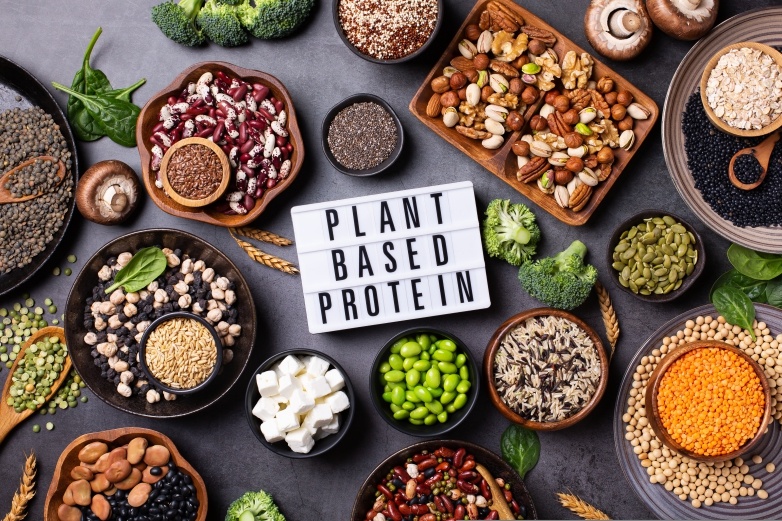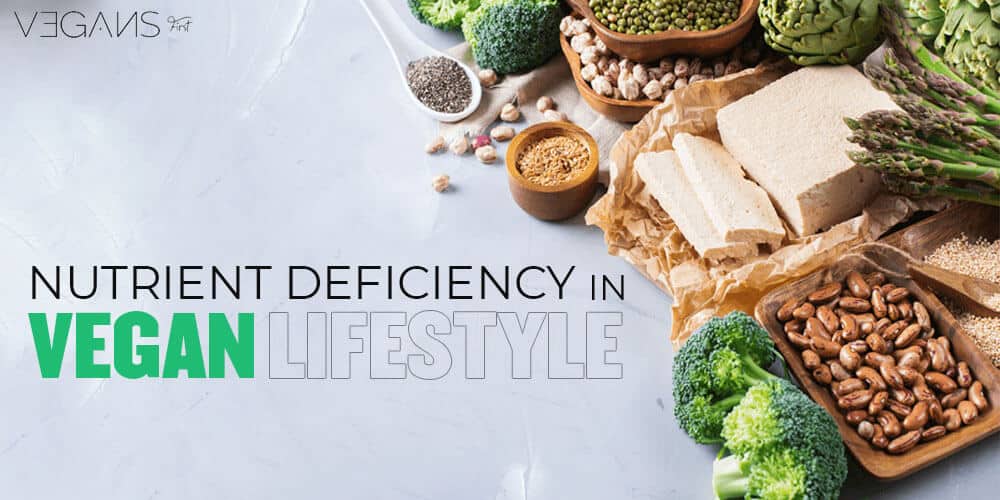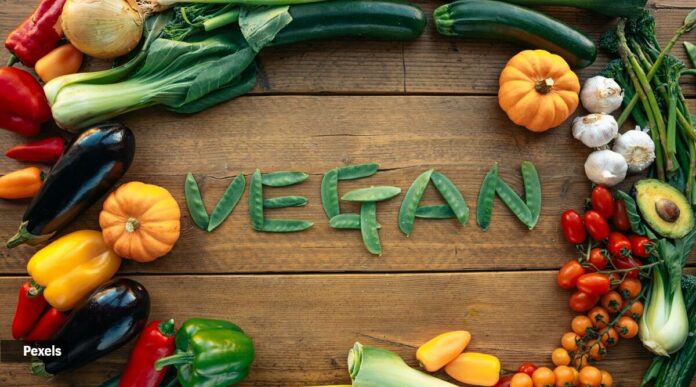Veganism has gained significant popularity in recent years, with many individuals adopting plant-based diets for ethical, environmental, and health reasons. However, along with its rise in popularity, several myths and misconceptions have emerged regarding the vegan lifestyle. In this article, we will debunk 14 common myths about veganism to provide a clearer understanding of the realities behind plant-based diets. By addressing concerns about nutrient deficiencies, protein sources, cost, and more, we aim to dispel misconceptions and provide accurate information. Understanding the truth behind these myths can help individuals make informed decisions about embracing veganism or incorporating more plant-based foods into their diet.
Myth 1: Vegan diets lack essential nutrients.
One of the most prevalent myths about veganism is that it fails to provide essential nutrients. However, with proper planning and a varied diet, vegans can obtain all the necessary nutrients. Plant-based sources offer ample protein, iron, calcium, and other vital nutrients. Legumes, tofu, tempeh, quinoa, and nuts are excellent protein sources, while leafy greens, fortified plant milks, and calcium-set tofu provide sufficient calcium. Vegans can obtain iron from sources like beans, lentils, spinach, and fortified cereals. By including a wide range of fruits, vegetables, whole grains, and fortified foods, vegans can meet their nutritional needs and debunk the misconception that their diet lacks essential nutrients.
Myth 2: Plant-based proteins are inadequate.

Contrary to this popular belief, plant-based proteins can provide all the essential amino acids needed by the human body. Foods like quinoa, buckwheat, soy, and hempseed are complete proteins, meaning they contain all nine essential amino acids. Furthermore, a well-planned vegan diet that includes a variety of legumes, grains, nuts, and seeds can easily meet protein needs. For example, chickpeas, lentils, and tofu are all excellent sources of plant-based protein. Therefore, it’s a myth about vegan or plant-based diets cannot provide sufficient protein for healthy living.
Myth 3: Vegans can’t get enough calcium.
It is a common misconception about veganism struggle to obtain adequate calcium without dairy products. However, there are numerous plant-based sources of calcium that can meet the recommended daily intake. Foods such as leafy green vegetables like kale, broccoli, and bok choy, as well as fortified plant-based milk alternatives, tofu, and sesame seeds, are rich in calcium. Additionally, many plant-based milks and juices are fortified with calcium, making it easier for vegans to meet their needs. By including these calcium-rich foods in their diet, vegans can easily debunk the myth that they cannot obtain sufficient calcium without consuming dairy products.
Myth 4: Vegan diets lead to iron deficiency.
Another myth, vegans can meet their iron needs through plant-based sources without the need for animal products. While plant-based iron is non-heme iron, which is less readily absorbed than heme iron found in animal products, there are ways to enhance its absorption. Combining iron-rich foods with vitamin C sources, such as citrus fruits or bell peppers, can increase iron absorption. Plant-based iron-rich foods include legumes, lentils, tofu, spinach, quinoa, and fortified cereals. Furthermore, cooking in cast-iron pans can also increase iron content in meals. By including these foods in their diet and optimizing iron absorption, vegans can easily debunk the myth that their diet leads to iron deficiency.
Myth 5: Veganism is expensive.
Contrary to popular belief, veganism doesn’t have to be expensive. While some specialty vegan products can be pricier, a plant-based diet based on whole, unprocessed foods can be affordable and cost-effective. Staples such as grains, legumes, fruits, vegetables, and nuts are often budget-friendly and widely available. Buying in bulk, shopping seasonally, and planning meals in advance can further reduce costs. Additionally, plant-based proteins like beans and lentils are often more economical than animal protein sources. With proper meal planning and budget-conscious shopping, vegans can easily debunk the myth about veganism is inherently expensive and show that it is possible to maintain a healthy, affordable plant-based lifestyle.
Myth 6 : Vegans don’t get enough protein.
This myth is far from the truth. Plant-based diets can provide ample protein, as long as individuals consume a varied and balanced diet. Legumes, tofu, tempeh, seitan, lentils, quinoa, and nuts are all excellent sources of plant-based protein. By combining different protein sources throughout the day, vegans can easily meet their protein requirements. Moreover, plant-based proteins often come with the added benefits of being low in saturated fat and cholesterol, while providing essential fiber and other nutrients. By debunking this myth, we can highlight that a well-planned vegan diet can offer sufficient protein for individuals of all ages and activity levels.
Myth 7: Plant-based diets are low in energy.
This myth couldn’t be further from the truth. Plant-based diets can provide abundant energy when properly planned. Fruits, vegetables, whole grains, legumes, nuts, and seeds are all excellent sources of carbohydrates, which are the body’s primary source of energy. These foods also provide essential vitamins, minerals, and fiber, supporting overall health and sustained energy levels. Additionally, plant-based diets can be diverse and include a wide range of foods, ensuring a good balance of nutrients and energy sources. By debunking this myth, we emphasize that well-planned plant-based diets can offer plenty of energy to fuel an active and healthy lifestyle.
Related: 15 Easy Vegan Recipes for Beginners!
Myth 8: You can’t build muscle on a vegan diet.
This myth is entirely false. A well-planned vegan diet can provide all the necessary nutrients for muscle building and strength. Plant-based protein sources like legumes, tofu, tempeh, seitan, quinoa, and hemp seeds offer ample protein for muscle repair and growth. Additionally, a variety of plant-based foods can provide essential amino acids required for muscle development. With proper meal planning, vegans can meet their protein needs and optimize muscle building. Many successful vegan athletes and bodybuilders are living proof that it is entirely possible to build and maintain muscle on a plant-based diet. By debunking this myth, we highlight that veganism and muscle building are compatible when nutritional needs are met through a well-rounded diet.
Myth 9: Vegan diets are bland and boring.

This myth couldn’t be further from the truth. Vegan diets offer a wide array of flavors, textures, and culinary possibilities. With the abundance of fruits, vegetables, grains, legumes, herbs, and spices, vegans can create delicious and satisfying meals. Plant-based cooking allows for creativity and exploration of different flavors and cooking techniques. Additionally, there is a vast selection of plant-based substitutes available for traditional animal-based ingredients, such as vegan cheeses, meat alternatives, and dairy-free desserts. Vegan cuisine from around the world offers a diverse range of dishes, from vibrant salads and hearty stews to decadent desserts. By debunking this myth about vegan, we showcase the exciting and flavorful options that vegan diets have to offer.
Myth 10: Vegans don’t get enough omega-3 fatty acids.
Contrary to the myth, vegans can obtain sufficient omega-3 fatty acids through plant-based sources. While fish is commonly associated with omega-3s, there are vegan-friendly alternatives available. Flaxseeds, chia seeds, hemp seeds, walnuts, and algae-based supplements are excellent sources of omega-3 fatty acids, specifically alpha-linolenic acid (ALA). The body can convert ALA into the essential omega-3 fatty acids, eicosapentaenoic acid (EPA) and docosahexaenoic acid (DHA), although the conversion rate may be lower than direct consumption. However, algae-based supplements can provide direct EPA and DHA for those who prefer a vegan source. By debunking this myth, we highlight the various plant-based options available for vegans to meet their omega-3 fatty acid needs.
Myth 11: Veganism is a nutrient-deficient diet for children.

This myth is unfounded when a well-planned vegan diet is followed for children. With proper attention to their nutritional needs, children can thrive on a plant-based diet. It is crucial to ensure adequate intake of key nutrients such as protein, iron, calcium, vitamin B12, vitamin D, and omega-3 fatty acids. Fortified plant-based milk alternatives, tofu, lentils, whole grains, fruits, and vegetables can provide essential nutrients for growth and development. However, consulting with a pediatrician or registered dietitian is recommended to ensure all nutritional requirements are met. Numerous studies have shown that appropriately planned vegan diets can support healthy growth and development in children, debunking the myth about veganism that is nutrient-deficient for them.
Myth 12: Plant-based diets are not sustainable for athletes.
This myth is completely false as an increasing number of athletes are thriving on plant-based diets. Plant-based diets can provide all the necessary nutrients for optimal athletic performance. Adequate protein can be obtained through plant-based sources like legumes, soy products, quinoa, and nuts. Carbohydrates from whole grains, fruits, and vegetables offer sustained energy for workouts. Additionally, plant-based diets can be rich in antioxidants, fiber, and phytonutrients, which aid in recovery and reduce inflammation. Numerous professional athletes have excelled on plant-based diets, debunking the myth that it is unsustainable for athletic performance. With proper planning and attention to nutritional needs, plant-based diets can support athletes in reaching their peak performance levels.
Myth 13: Veganism is a restrictive and difficult lifestyle.
Veganism can be an incredibly diverse, fulfilling, and accessible lifestyle. With the growing popularity of veganism, there is a wide range of plant-based alternatives and substitutes available. Vegan cooking and dining options have expanded significantly, with countless recipes, cookbooks, and restaurants catering to vegan preferences. Additionally, many grocery stores now carry a wide variety of plant-based products, making it easier than ever to find vegan options. The internet is full of resources, support groups, and communities to provide guidance and inspiration. By debunking this myth about veganism, we emphasize that veganism can be a flexible, enjoyable, and sustainable lifestyle choice for people of all backgrounds.
Myth 14: Vegans can’t get enough vitamin B12.

It is true that vitamin B12 is primarily found in animal-based products, vegans can obtain this essential nutrient through fortified foods and supplements. Many plant-based milks, breakfast cereals, and meat substitutes are fortified with vitamin B12. Additionally, there are vitamin B12 supplements available that are suitable for vegans. Since vitamin B12 is crucial for nerve function and the formation of red blood cells, it is essential for vegans to ensure they have a reliable source of this nutrient. By debunking this myth about veganism, we emphasize that with proper planning and attention to vitamin B12 intake, vegans can meet their nutritional needs and maintain optimal health.
Conclusion
Debunking common myths about veganism helps shed light on the realities of a plant-based lifestyle. From the misconception of lacking essential nutrients to the belief that vegan diets are restrictive or insufficient for athletes, these myths have been debunked with evidence-based information. It is clear that well-planned vegan diets can provide all the necessary nutrients for a healthy and balanced lifestyle. With a wide range of plant-based protein sources, creative culinary options, and accessible fortified foods, veganism has become more inclusive and sustainable than ever before. By dispelling these myths, we encourage a better understanding and acceptance of veganism as a viable and fulfilling dietary choice.


